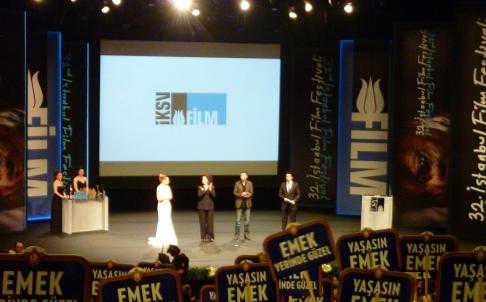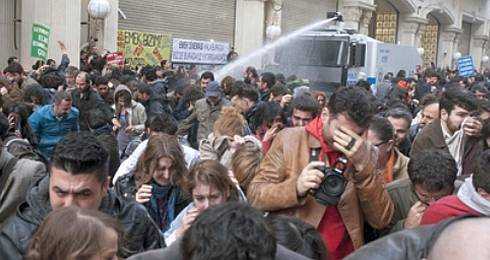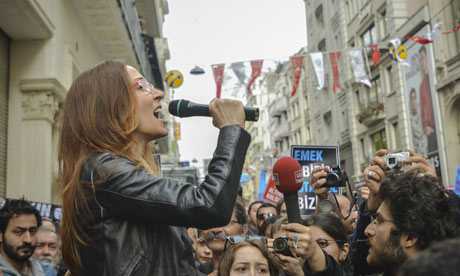
Stretching along both sides of the Bosphorus, the cosmopolitan Turkish city of Istanbul is a mesmerising metropolis. A bridge between Europe and Asia, a melting pot of cultures and peoples, it is steeped in tradition but also ever growing – with both historic monuments and construction sites shaping its skyline.
Amid this vitality and diversity, the 32nd edition of the Istanbul Film Festival (IFF) took place between March 30 and April 14, treating its attendees to 500 screenings of 226 films from around the world.
With a reputation for having an open-minded, intellectually curious, thought-provoking and engaged approach to cinema, the festival has a distinctive character and profile.
Azize Tan, the festival’s director for the past seven years, is clear about the Istanbul Film Festival’s identity. “IFF is not a red-carpet festival but a feast for the public; a platform with an open, friendly atmosphere where people can talk about the films and celebrate them together with our guest directors, who are accessible and close to the audience,” she says.
With 15 thematic sections, the festival continued to promote emerging talents and new ideas, and showcase both cinematic history and cinema’s strong link to the arts.
Among this year’s highlights were a retrospective programme of the works of Mexican filmmaker Carlos Reygadas along with a memorable master class that he conducted. There were also stimulating talks from Australian auteur Peter Weir – who presided over the Golden Tulip International Competition’s jury – and the Greek-born, naturalised French filmmaker, Costa Gavras.
The Turkish cinema 2012-2013 section comprised 30 new works (features, documentaries and shorts) and was very much the core of the event. Human relationships, family bonds, and the quest for happiness were threads running through most of the films.
The IFF’s programme also highlighted politically, socially and culturally committed films. And the activism and civil participation were not confined to the screen: a demonstration on the central Istiklal Avenue against the demolition of the old Emek movie theatre, the heart of the festival for many years and a symbol of the fight against gentrification, was high on the agenda, with Tan and her team turning out to protest together with festival guests including Gavras.
The struggle to save the historic Istanbul landmark dominated the closing ceremony too, and made it reminiscent of a good-humoured political rally. The presentation of the Golden Tulip awards took place amid a sea of slogans and placards, making for touching, even heart-warming, scenes.
What Richard Did won the international competition. A fine psychologically introspective portrait of the quietly devastating downfall of an Irish golden boy, Lenny Abrahamson’s adaptation of a Kevin Power novel offers a glimpse into the abyss of the human soul.
With its fresh, idiosyncratic approach to everyday life in a small provincial city, Thou Gild’st the Even by Onur Ünlü won the Golden Tulip in the national category. Shot in black and white, and gently shifting from reality into an imaginary, slightly absurd world, the Turkish filmmaker stunningly describes an ordinary population with extraordinary talents.
Set in the upper middle-class milieu of Istanbul, Lifelong, a stylish psychological drama about a couple trapped in a hollow relationship but unable to break up, won Asli Özge the award for best director.
Deniz Akçay Katiksiz took the best debut film award with Nobody’s Home. A mature work with a strong autobiographical touch, it is a sharply observed study of the conflict caused by the inability to communicate between four family members following the death of the father.
Ercan Kesal won the best actor award for his role in Mahmut Fazil Coskun’s humorous melodrama about ageing, Yozgat Blues.
The human rights competition prize went to The Patience Stone by Atiq Rahimi.


